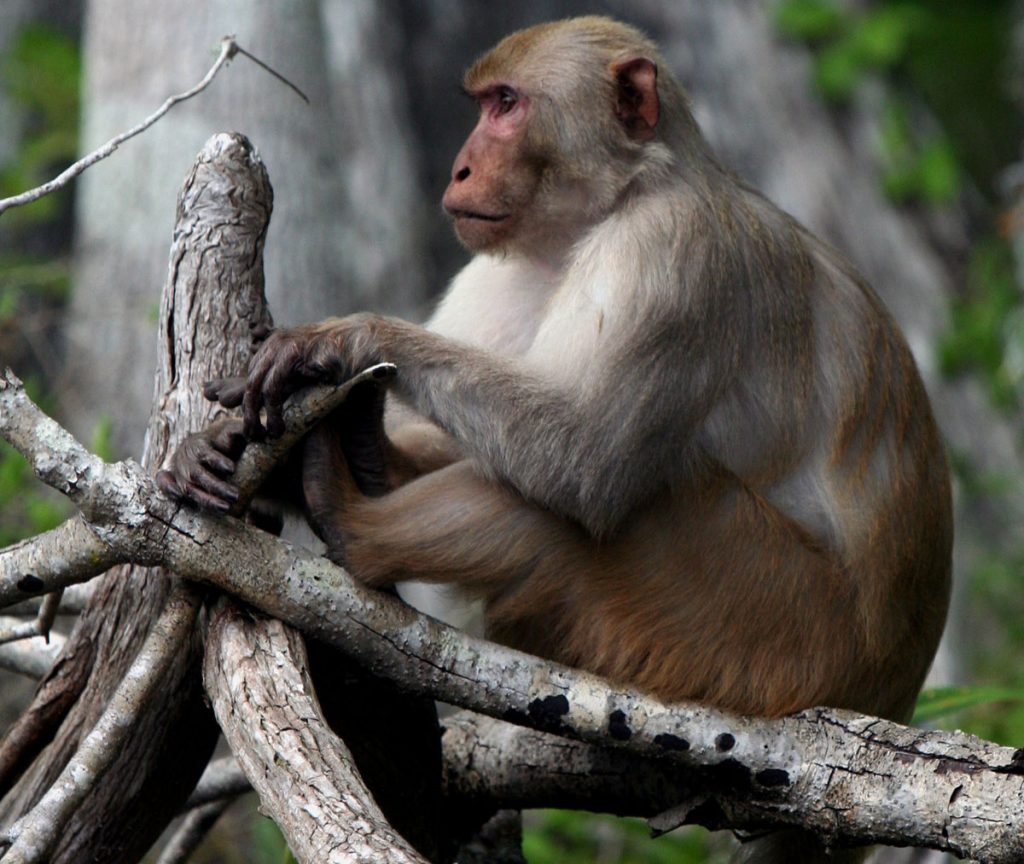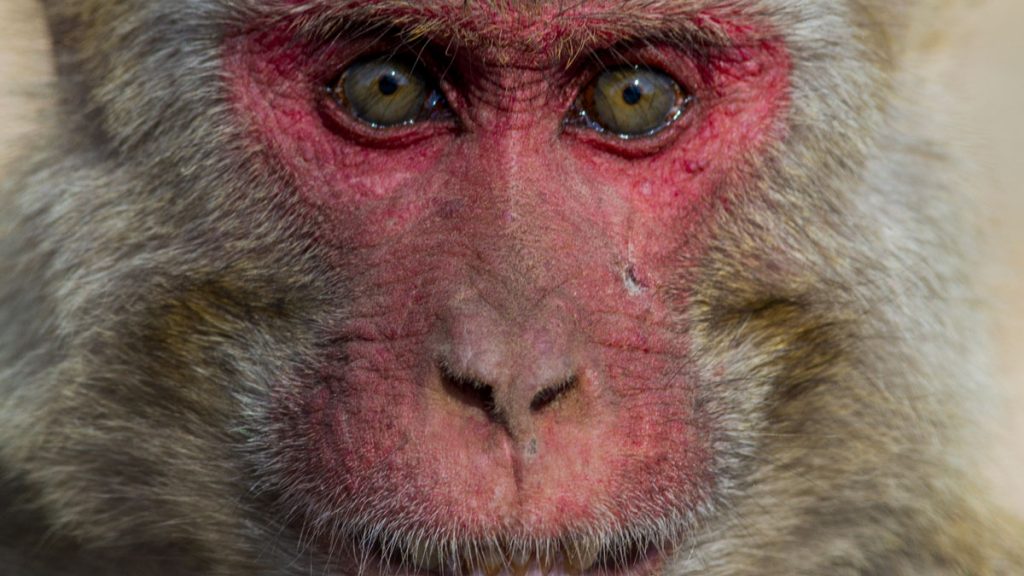
Florida just can’t catch a break when it comes to potentially dangerous invasive species.
One of the latest threats comes from a growing population of rhesus macaques that could pass on a potentially deadly herpes virus to humans who get too close.
The saga began more than 80 years ago when a tour boat operator brought a group of macaques to Silver Springs as part of a tourist attraction. As the story goes, Colonel Tooey released six rhesus macaques on an island located near the Silver River, hoping to add a bit of excitement to his jungle cruise ride.
There was just one problem. Tooey hadn’t realized the monkeys could swim.
The macaques immediately escaped from the island, but initially stuck around the area since the boat operators fed them. As they bred over the following decades, the feral monkeys spread into Central Florida — and have appeared as far as 100 miles from the park.

Currently, there are an estimated 200 wild macaques living inside Silver Springs State Park alone.
Unlike other invasive species besieging the state, it’s not clear just how much of an impact the monkeys have had on the ecosystem. But they may pose a “public health concern” according to researchers who revealed that at least 25 percent of the population carries the herpes-B virus. In macaques and other monkeys, the disease is common and not particularly harmful, but it can be fatal in humans if not treated immediately.
Herpes B can be transmitted via saliva, urine and feces, typically through bites and scratches. That’s concerning since the macaques in Silver Springs State Park have been known to act aggressively toward people, forcing the park to close twice. Watch one family’s encounter with the monkeys below:
Even more worryingly, a recent study published in The Journal of Wildlife Management predicted that the macaque population could nearly double in the next few years — if officials don’t step in. More monkeys could increase the risk of the virus being transmitted to humans, especially park visitors who feed the animals or try to take selfies.
In 2017, the Florida Fish and Wildlife Conservation Commission made it illegal to feed wild monkeys, including macaques and the two other established non-native species in Florida: squirrel monkeys and vervet monkeys.
The study’s co-authors write that while there have there have been no known human deaths caused by transmission of the virus from wild macaques, it’s a low-probability, high-risk problem that would be best avoided.




